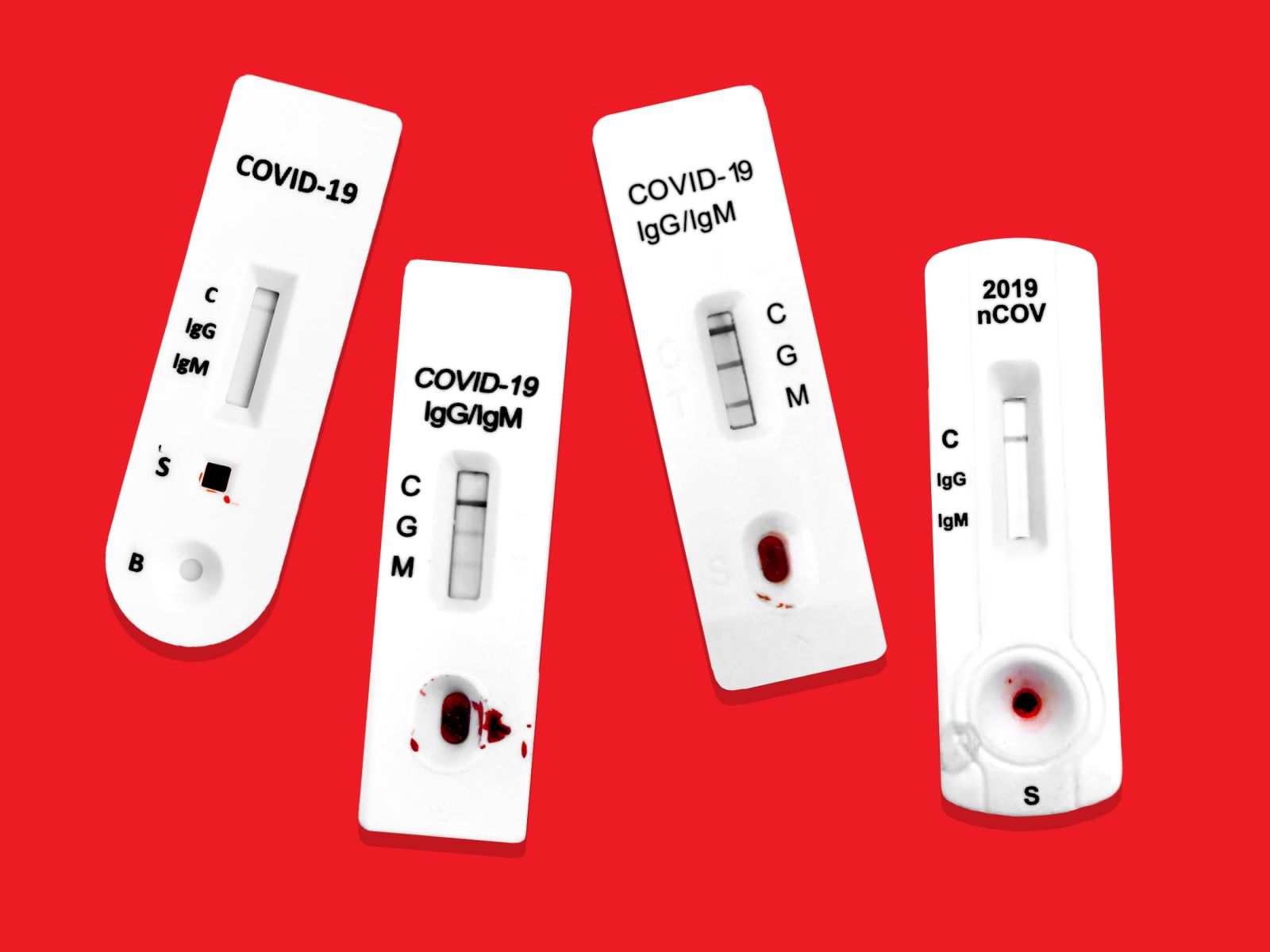COVID-19 Antibody Tests: Medical Researchers Warn About Misinformation With Regards To Test Results
Source: COVID-19 Antibody Tests Jun 02, 2020 4 years, 10 months, 3 weeks, 3 days, 8 hours, 1 minute ago
COVID-19 Antibody Tests: The Covid-19 serology or antibody tests became available only in April this year. These tests involve a blood sample and detect antibodies produced by the body in response to the SARS-CoV-2 coronavirus. A positive test indicates that a person was infected at some time in the past.

A research paper published recently in the journal Clinical Chemistry by Dr Neil Anderson, MD, an assistant Professor of Pathology and Immunology at Washington University School of Medicine in St. Louis and the assistant medical director of the Clinical Microbiology Laboratory at Barnes-Jewish Hospital, and Dr Christopher Farnsworth, PhD, an instructor of pathology and immunology at the School of Medicine, emphasized the importance of ensuring that antibody tests are used appropriately. https://academic.oup.com/clinchem/advance-article/doi/10.1093/clinchem/hvaa107/5826351
Below are basic questions and answers by the researchers to spell out any misinformation about these tests and the results.
Question 1: Why exactly are antibody tests for COVID-19 important?
Typically, antibody testing is really helpful in monitoring how widely a virus has spread within a community. Such testing could help determine how many people have recovered from the virus, even if they never had symptoms. For many viruses, once about 70% of the population is immune either because they have had a natural infection or, better yet, received a vaccination, infected people are less likely to encounter a susceptible person and give them the virus, so transmission goes down and the epidemic ends. That’s called herd immunity. Now, estimates suggest about 1% to 2% of people in the U.S. have been infected with the virus that causes COVID-19, so the country are nowhere close to achieving herd immunity.
Question 2: If my antibody test is positive, does that mean I have had COVID-19 and will not get it again?
A positive test just means your body has produced antibodies in response to a past infection; it does not tell us whether those antibodies will protect you from getting re-infected. The only way we’d know for sure is if we followed patients who are antibody-positive for months or years to see whether they get re-infected. Those studies are underway by scientists at other institutions, but there is no answer yet.
Question 3: Could antibody tests decide who can safely go back to work?
Many individuals are anxious to get people back to work, but antibody tests may give some people a false sense of security. The problem is that even a highly accurate antibody test like the one we use in our laboratory has false positives and false negatives. When the true rate of infection in a community is very low, you will have more false positives than true positives, no matter how good the test is. In Missouri, we think that fewer than 1% of the population has been infected. In our research, we estimated that if we screened asymptomatic individuals, only one out of seven positive antibody tests in Missouri would be true positives, even with a highly accurate test. So, the other six people may think they’re protected and let their guard down, and then they could get infected and spread the disease. Widespread antibody testing could do more harm than good if people do not understand the limitations of such testing.
Question 4: What proper ways should antibody
tests be used for?
So far there have not been formal guidelines at the national or local levels regarding how exactly these tests should be used. And, in the absence of such guidelines, many people are anxious to get antibody testing. The way I look at such tests is that they’re a tool. People develop antibodies a week to two weeks into an infection, so antibody tests can support diagnostic tests in identifying current infections. They also can be used for screening or public health surveillance. But, for all these purposes, antibody tests should not be the sole source of information for decision-making. As we learn more about the tests and what they’re capable of, I think we’ll be able to make some evidence-based guidelines to indicate who should be tested and what we should do with the results.
For more on articles about
COVID-19 antibodies, keep on logging to Thailand Medical News.
